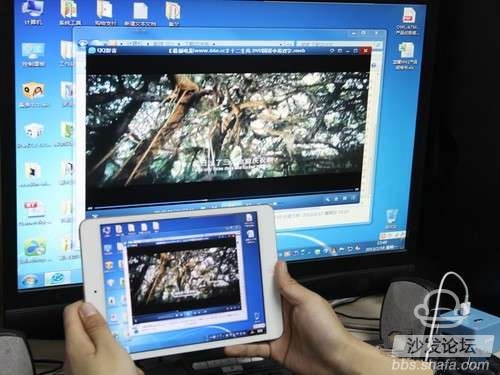Less than 100 days into 2015, the annual box office in China’s movie industry has exceeded the 10 billion yuan mark, and the output value of the Chinese movie market has reached 100 million yuan a day. What has enabled the rapid expansion of the Chinese movie market and the substantial increase in the spending power of the audience? According to industry insiders, apart from the strong support of industrial policies and the rapid growth of cinema construction, an important reason is the full entry of the Internet. Huace, Xiaomi, Baidu iQiyi Capital Integration; Alibaba acquires cultural China, Youku Tudou; Tencent and Huayi Brothers are married, these joint actions show that the Internet in the film industry is no longer just a marketing and promotional platform, but From the outside to the inside, from the bottom up, we will transform and reconstruct all aspects of the distribution, production, creation, capital, and services of the film industry chain.
At the 5th Beijing International Film Festival recently held, the relationship between the Internet and movies became the hottest topic. Many forums used this as the theme and attracted many people in the Internet, traditional film industry and the surrounding industries. All of them expressed their own opinions, spit their swords and swords, and sometimes had fierce clashes.

How does the Internet help IP incubate into movies?
IP (Intellectual Property) is a hot word for the film and television content industry last year and this year. Both traditional media and new media have embarked on the road to IP content: Focusing on core IPs such as popular TV dramas, variety shows, and movies, they have extended to the upstream and downstream of the industrial chain to form games, publications, e-commerce, animation, and APP. And other new ecological products. In the past two years, the market has grown tremendously. Every film company needs a project. Finding off-the-shelf IP is a shortcut. There are also many successful examples of IP-adapted films that are popular among the audience, such as online novels and online dramas. Zhu Huilong, president of One-Touch Pictures, believes that in the new era, the public will seek a label that is consistent with their own needs. This is an audience's desire to promote IP maturity. The core of IP industrialization lies in whether it represents a certain value, and whether there are enough fans to agree with this value and whether they have the vitality to continue to go. The Internet is a very suitable experiment and training platform. It can gradually incubate good writing, songs and even cartoons into big movies.
Will the Internet disappear from the Internet?
The phenomenon of piracy in the Chinese movie market has now been greatly rectified. People who are accustomed to obtaining resources free of charge from the Internet are slowly creating copyright awareness and gradually cultivate the habit of paying for movies. IGI CEO Gong Yu has proposed a bold prediction that physical theater will disappear in the future, so iQiyi has been building network theater for many years. Now, the iQIYI platform allows members to choose from 6,000 Chinese and foreign films at a membership fee of less than $20 a month. Domestically produced new films have been broadcasted from the theaters to the Internet platform. In the past, they usually took one month or so, and now 30% to 40% of the domestic blockbusters can play on the network platform for the first time, and the amount of paid play is extremely high. Iqiyi Li Yansong said that the next thing to do is whether this "window period" can be further shortened.
Is the Internet a devil of the traditional film industry?
"The Internet may bring a huge disaster to the traditional film industry, from an angel to a devil." Zhao Jun, deputy general manager of the Zhujiang Film Group, has a very strong point of view. Right now, the percentage of viewers buying tickets from the Internet seats is conservatively estimated at 40%, and even some radical estimates are even up to 60%. Ticket prices are often as low as 19.9 yuan or even 9.9 yuan. The difference between the ticket price and the minimum price is replenished by Internet companies. cinema. Therefore, Zhao Jun believes that Internet companies must abide by the contract and credit with the traditional film industry. If Internet companies make up a large number of movie tickets in order to plunder the data and traffic of the traditional movie industry, or Internet companies have a lot of delays on the cinema and the bottom layer. If you drag, you will change from an angel to a devil, from a hero to a criminal, and this will be a huge disaster for the Chinese movie industry.
Can the Internet help filling up "dead seats"?
"The Internet is not a subversion but a service to the movie." Wang Xun, the CEO of the US Mission Network, believes that regardless of previous group purchases or various types of ticket purchase applications, the existing offline services will only be transplanted to the line, using low-cost promotions. Occupy the share of the existing stock market. Its role is to accelerate the decision-making process of existing audiences. In 2014, China’s movie box office was close to 30 billion, but only about 15% of movie theater attendance was recorded. The main way to solve this dilemma is to fill in those invalid "dead seats", and group purchase can only be a temporary solution, and the root cause should rely on search engines, through technical means, to tap potential users, capture and stimulate the fuzzy needs, so that more users Enter the theater and activate "dead seats". For example, as an information and service portal Baidu, with the advantage of big data, it can quickly "translate" each click of a user into an actual need, and convert an implicit user into an actual user. If the user searches for "high round," Baidu can use the big data analysis and LBS smart recommendations to push high-round rounds for nearby theaters.
Has the Internet disrupted the film's traditional pricing system?
An Xiaofen, president of Dasheng International Media, who had participated in the production and distribution of films such as Yiwen and Xiaoshi, believes that the Internet, as a propaganda and broadcasting platform, provides great support to traditional movie companies, but it also brings disadvantageous factors. She said that the purchase of tickets through the Internet has become the choice of more than half of the audience, and domestic ticketing websites competed with each other and waged a price war. They dragged the upstream and downstream into the war, interfering with the upstream pricing and cinema lineup. She also called for content to be king, and traditional industries should unite to maintain their own pricing and scheduling system, put an end to a single buy-out copyright sale, and introduce a sharing model.
Despite controversy and disagreement, no matter whether it is accepted or accepted passively, people from all walks of life recognize that the Internet has become ubiquitous, and integration with the traditional film industry is a general trend, and because of the leading effect of the film, the film industry has become an Internet advancement. The primary area of ​​culture and entertainment industry. The Internet has not only been satisfied with providing technology to the film industry, but has rapidly reshaped the traditional film industry through financing, mergers and acquisitions and strategic cooperation. "The Internet cannot guarantee the success of the film, but if the film industry does not understand the Internet, it is difficult to obtain a big victory." Zhu Huilong said.
This content is copyrighted exclusively by SofaNet. Welcome manufacturers to further exchanges and cooperation with us to create more in-depth product reports. contact us

Smart TV box recommended to install sofa butler, download address: http://app.shafa.com/
Sofa Net is an Internet technology company specializing in smart TVs and boxes. It owns popular products such as sofa butlers, sofa tables, and sofa forums. It has been committed to providing high quality application resources for smart TVs and TV box users, and active community exchanges. And authoritative evaluation of smart TV products. 